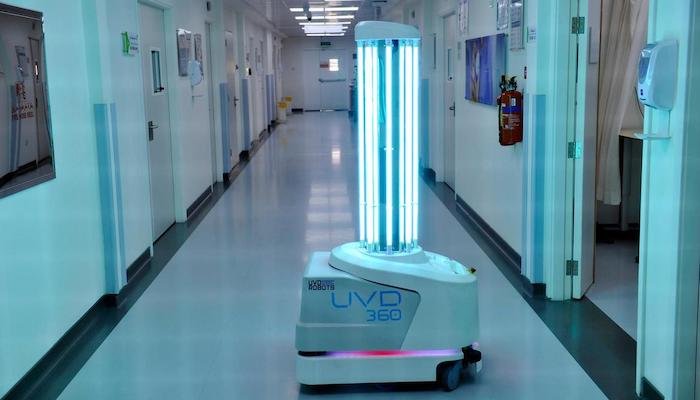Dubai is stepping into the future of healthcare. The Dubai Health Authority (DHA) has officially introduced Artificial Intelligence (AI) technology to support doctors in diagnosing patients faster and more accurately. With this new move, Dubai aims to set a new standard for digital healthcare in the region.
This development is not just a step forward—it’s a leap. Hospitals and clinics under DHA will now use smart systems that can scan medical images, understand symptoms, and suggest possible diagnoses, all within seconds. These AI-powered systems are designed to work alongside doctors, not replace them, helping healthcare professionals make better, faster decisions.
Why AI in Healthcare Matters
Traditionally, diagnosing a health condition takes time. Doctors need to go through a patient’s history, check symptoms, run several tests, and interpret the results. With AI, much of this process becomes quicker. For instance, AI can analyse X-rays or MRI scans and spot issues that even trained eyes might miss. This reduces human error and helps doctors make quicker, more accurate calls.

The goal of the DHA’s new system is simple: to reduce waiting times, improve accuracy, and allow doctors to focus more on patient care. By speeding up the diagnostic process, patients will get treatment faster, which could even save lives in emergencies.
Real-Time Support for Medical Staff
DHA’s AI tools are already being tested in several hospitals and clinics across Dubai. One of the early success stories comes from Rashid Hospital, where doctors used the AI system to detect signs of pneumonia in a patient within just a few minutes. Normally, this process could take hours due to lab reports and scan reviews. Thanks to AI, the patient was diagnosed quickly and treated before the condition got worse.

Doctors are now receiving real-time assistance. For example, if a patient comes in with chest pain, the AI tool can instantly compare symptoms with thousands of similar cases and suggest possible causes, like a heart attack or lung issue. This doesn’t replace the doctor’s judgment, but it gives them a strong starting point.
What Kind of AI Is Being Used?
The AI systems being introduced are built using machine learning and data analysis. They’re trained on large sets of medical data, including past patient records, medical images, and clinical outcomes. Over time, these systems learn from new cases and become smarter.
One popular tool being used is AI radiology software. It looks at scans and highlights problem areas automatically. DHA has also introduced AI-based chat systems that help patients report their symptoms and receive basic guidance before seeing a doctor.
There are also plans to integrate these tools into emergency rooms and intensive care units. The aim is to give doctors a full digital assistant that can monitor patient vitals, track changes, and send alerts if something is wrong.
Dubai’s Smart Healthcare Vision
This move is part of a much bigger plan. Dubai has always aimed to be a smart city, using technology to improve people’s lives. In healthcare, the focus has been on improving quality, reducing costs, and making services more efficient. With AI, DHA believes it can meet all three goals.
Humaid Al Qutami, Director-General of the DHA, shared that this is just the beginning. “We are building a future-ready healthcare system. AI will not replace our doctors but will empower them. Our goal is to serve the community better, faster, and smarter.”
Dubai’s Health Strategy 2026 also highlights digital transformation as a major pillar. Introducing AI is a strong signal that the city is serious about becoming a global leader in smart health solutions.
What It Means for Patients
So, what does all this mean for everyday people in Dubai? For starters, shorter wait times at hospitals and quicker answers from doctors. Imagine getting your scan results within minutes, instead of days. Or being able to talk to an AI assistant at home that can tell you whether you should visit a hospital.

These tools also offer hope for early detection. Some diseases, like cancer or heart conditions, can be hard to catch in the early stages. AI can analyse patterns in blood tests or scans that the human eye may miss. Catching these problems early means treatment can start earlier—and that can make all the difference.
Also, patients will likely get more personalised care. AI can analyse not just the illness, but the person—taking into account their age, medical history, and lifestyle. This makes treatment more targeted and effective.
Training and Ethics
Of course, introducing AI in healthcare also brings challenges. One of the main concerns is ensuring doctors and nurses are trained to use the tools correctly. DHA has already started running training programs for staff to learn how to work with AI systems. This includes understanding how the technology works and when to trust its suggestions.
There’s also the question of patient data and privacy. DHA has made it clear that all AI tools will follow strict data protection rules. Any data used by the AI is encrypted and anonymised to keep patient identities safe.
Ethical use of AI is another focus. AI should support, not decide. Doctors will always have the final say in diagnosis and treatment, with AI being a tool to support them, not override them.
A Glimpse of the Future
With the rise of AI, healthcare in Dubai is becoming faster, smarter, and more personalised. The introduction of AI by the Dubai Health Authority is one of the boldest steps the city has taken in the field of medicine. It shows how technology can be used for good—saving time, improving outcomes, and ultimately, saving lives.
It’s an exciting time for both doctors and patients. From faster diagnostics to personalised treatment plans, AI is here to change the game—and Dubai is leading the way.
Whether you’re visiting a clinic for a routine checkup or facing a serious health issue, you may soon find AI playing a part in your care. And that’s not science fiction—it’s happening now.
Also read: Sanaiya Abu Dhabi: The Industrial Hub That’s Powering Progress












